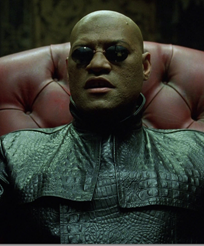Walking out of a crowded multiplex after nearly three hours of watching Ryan Gosling not emote in varying shades of “hauntingly beautiful dystopia”—which should really be its own Insta filter—I had trouble pinning down just what I didn’t like about Denis Villeneuve’s Blade Runner 2049, the long-awaited (or not?) sequel to Ridley Scott’s 1982 original. Sure, it was long, brooding and slow—the word “lugubrious” came to mind on several occasions with regards to the pace, flashing in my mind like the neon signs in mid-21st century L.A. And yes, Jared Leto seemed to play the nonsensical corporate overlord Niander Wallace as if mystified by his own mystifying performance, which was not actually mystifying at all, more weird just to be weird. But the twist at the end was genuinely gratifying, Richard Deakins's cinematography, about which others have gushed, was visually stunning and I liked Harrison Ford, even more so than I did in the original. So what, exactly, was the problem?
Suddenly, as the salty scent of popcorn dulled, it hit me: I just didn’t care. Simply did not give a shit. In as general terms possible. About anyone in the movie. Their fates, their inner lives, their relationships. All of it I received with lukewarm acceptance, the way I do turkey club sandwiches: it’s fine. I’m not offended by the turkey club sandwich. It’s not a bad sandwich, by any means. But I’m not moved by the combination of turkey and bacon and lettuce and tomato like I am by, say, roast beef and provolone, or tuna and giardiniera.
Akin to turkey club sandwiches, my meh-ness on Blade Runner 2049 could be seen as a matter of taste. Not caring about something is not the same, from a critical standpoint, as thinking something isn't good. But when the entire movie is predicated on the theme of empathy—whether “replicants” (essentially, engineered humans) can feel empathy for another human being is a test used to determine whether or not they are real or artificial, both in the original and, to some extent, in the sequel—then the apathy is worth unpacking.
For those not in-the-know re: the Blade Runner property, a quick primer. In the original Blade Runner, Harrison Ford stars as Rick Deckard, a highly talented “blade runner,” which is basically a fancy word for a cop who hunts “replicants”—clones the Tyrell Corp engineered for slave labor that have revolted and proved dangerous to humanity. He falls in love, however, with Tyrell’s assistant, a replicant named Rachel. (Whether or not Deckard was, himself, a replicant, is the subject of some debate.)
In the sequel, Niander Wallace (Jared Leto) has improved on the Tyrell Corp’s formula, building an army of obeisant replicants that carry out their tasks without wising up to their situation (and, presumably, murdering their human keepers). K (Ryan Gosling), is a replicant blade runner tasked with killing any remaining replicants from the original—older models who may still pose a threat. That is, until he discovers that a replicant had given birth, thus challenging the notion of their kind’s artificiality altogether. If replicates can create life, the thinking goes, they must be considered human.
Both installments suffer from the Westworld problem: if the bulk of the film’s characters are slavish clones with pre-programmed motives, how are we supposed to muster up any sympathy for them? If nothing they do is authentic—if everything they do is predetermined by their creator—why should we care about what happens to them?
This is a problem that reveals itself in the writing of Blade Runner 2049, but most glaringly in the acting; Gosling, for most of the movie, essentially has to act inhuman, not because he is guarding a deep well of humanity (ala Casey Affleck in Manchester by the Sea, a strangely apt comparison) but because, as a replicant, we are meant to believe he does not have the capacity to experience true human feelings. Ironically, it’s his even less human companion, his beloved hologram named Joi (the excellent Ana de Armas), who strives to be human. Their love for each other is poignant, though perhaps not for the reason Villeneuve wants it to be: how sad, one thinks, that K is only capable of loving someone (something?) expressly designed to love him back. Contrary to Her, where an A.I. serves to further expose the human protagonist’s humanity, in Blade Runner 2049, the A.I. serves to further expose the inhuman protagonist’s inhumanity. Acknowledging the unjustness of the comparison, it’s no surprise that Her is a much more affecting movie.
And yet it would be foolish to think an artist as crafty and intelligent as Villeneuve, whose stellar resumé includes Arrival, Sicario and Prisoners, wasn’t aware of this central problem. In a movie where the human characters’ lack of empathy for their replicant counterparts is paramount, maybe a state of uncaring is the most meaningful response a human viewer can have. Profound as that may sound, however, it doesn’t change the fact that caring about a film’s characters—hating them, loving them, what have you—seems pretty integral to the moviemaking enterprise.
Man. I could really go for a tuna sandwich right about now.













